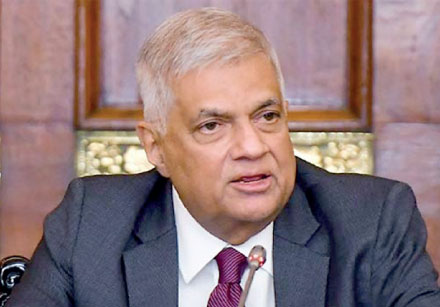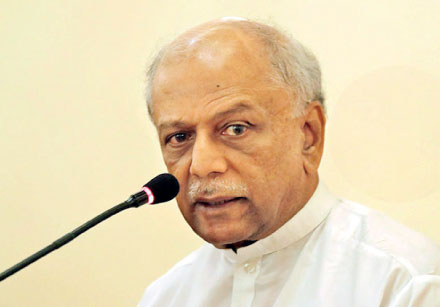Saturday Feb 21, 2026
Saturday Feb 21, 2026
Wednesday, 20 March 2024 01:48 - - {{hitsCtrl.values.hits}}

President Ranil Wickremesinghe

Prime Minister Dinesh Gunawardena
The Cabinet of Ministers on Monday approved a proposal to reform the electoral system that will see a hybrid system for parliamentary representation where 160 members would be appointed by first past-the-post system while 65 members would be elected under the proportional representation system.
At its meeting on Monday, the Cabinet decided to instruct the Legal Draftsman to propose amendments necessary to revise the Regulation of Election Expenditure Act No. 3 of 2023 which will include recommendations.
The proposed amendments will consider proposals made by a committee chaired by Prime Minister Dinesh Gunawardena, which was appointed to address electoral system reforms.
“Accordingly, a Cabinet sub-committee has been appointed to seek the views of all party leaders and other relevant parties representing the Parliament and submit a report to the Cabinet with relevant recommendations. Suggestions have been presented to the committee to elect 160 Members of Parliament directly from the voters of the respective constituencies and the remaining 65 Members of Parliament to be elected at the national or provincial level according to the proportional voting system and the agreement of the majority has been received for this,” the Government Information Department noted in its weekly cabinet decisions.
The proposal to this effect submitted by the Justice, Prison Affairs, and Constitutional Reforms Minister Dr. Wijeyadasa Rajapakshe was approved by the Cabinet of Ministers on Monday. On 19 January 2023, the Regulation of Election Expenditure Bill was passed in Parliament with amendments and a majority of 61 votes.
However, leader of the Opposition Party Samagi Jana Balawegaya (SJB) Sajith Premadasa and National People’s Power leader Anura Kumara Dissanayake criticised the decision citing that it was a mere trick of President Ranil Wickremesinghe to delay the upcoming Local Government polls.
They criticised the decision to debate the bill at a time when the Election Commission (EC) has initiated steps to hold the Local Government polls and when nominations are being accepted for the election.
Many opposition MPs also argued that if the Bill is adopted, it would make it virtually impossible for the EC to hold the Local Government elections that were on schedule and were later postponed for the second time.
On 11 April 2023, the EC announced that it was compelled to postpone the 2023 Local Government polls, scheduled to be held on 25 April 2023. The last Local Government polls were held in 2018 and the next election was originally scheduled to be held in 2022.